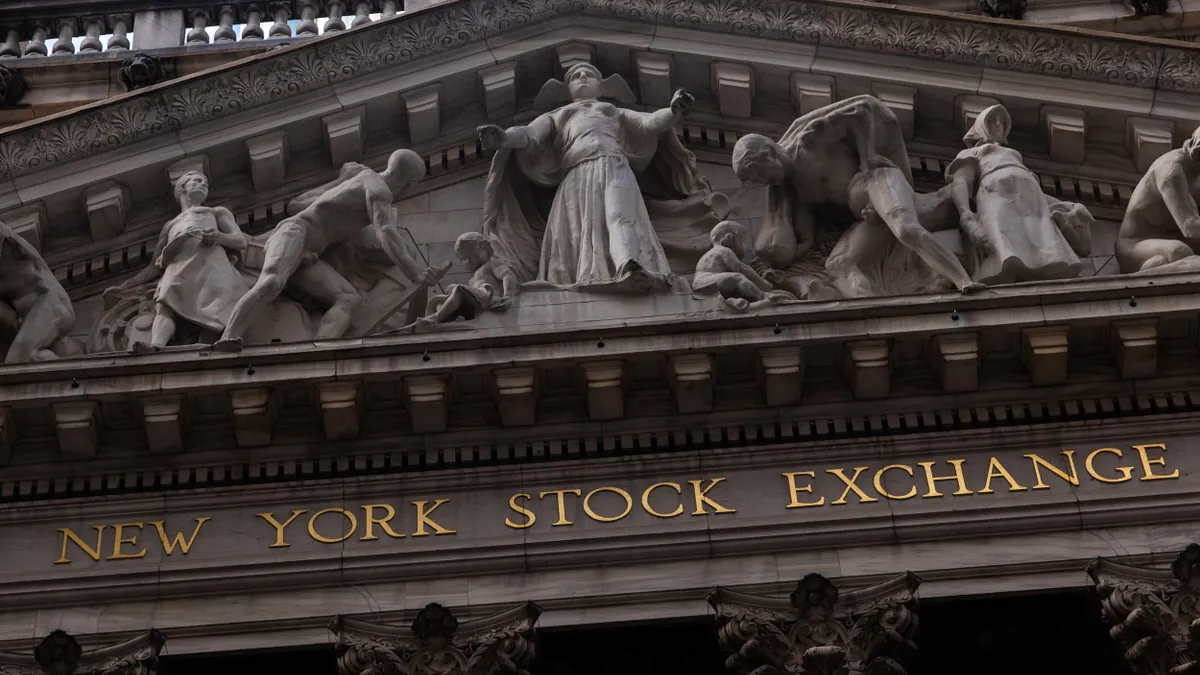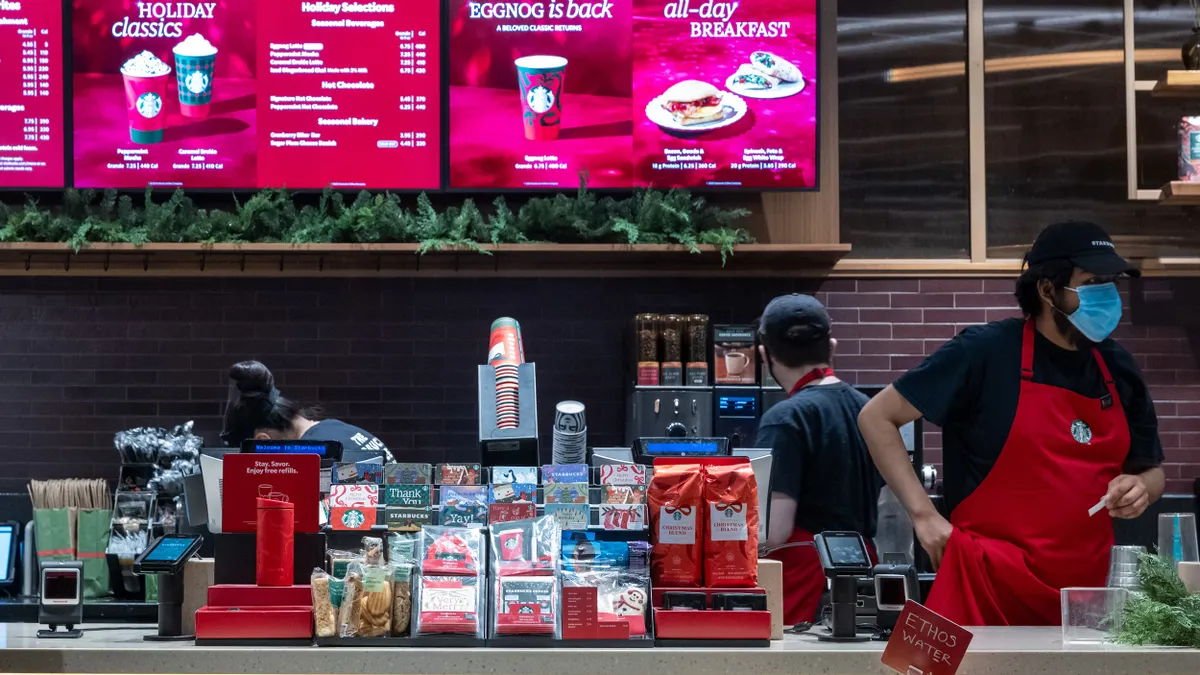Few companies are reporting adjustments to earnings before interest, taxes, depreciation and amortization (EBITDA) to account for COVID-19-related costs at this late stage of the pandemic. Some analysts say that's not a bad thing.
Adjustments to EBITDA, a non-GAAP performance measure, are intended to account for one-time events. The idea is to show that, but for these unique circumstances, the company's sustained performance would show a different result.
In the first few quarters after the pandemic's start, some companies were reporting adjusted EBITDA to account for purchases of personal protective equipment (PPE), higher pay to on-site employees and operational restructuring.
Uber, for example, increased its adjusted EBITDA by $19 million in March to account for assistance payments to its drivers.
Iron Mountain, an information management and storage company, included almost $10 million in expenses for PPE, plexiglass shields and facility cleaning in its second quarter financial results.
Analysts, half-jokingly, were calling the practice EBITDAC — earnings before interest, taxes, depreciation, amortization and COVID — and putting the term on coffee mugs. That's because the practice raised the question of whether companies were using the maneuver as a screen for bad performance.
"We view such measures as unreliable and open to manipulation," Fitch Ratings analysts said in a release.
But if the practice made sense early on, as companies scrambled to understand how to respond to the pandemic, it makes less sense now; COVID impacts can't be seen as a one-time event, but rather as a feature of the environment in which all businesses must operate.
"Presenting a one-off adjustment in what is a secular change is misleading," David Knutson, vice chair of the Credit Roundtable and head of credit research for the Americas at Schroders, has said.
Finance chiefs appear to be heeding the message. In its latest survey on use of the practice, law firm Bass Berry & Sims found only 16% of large, publicly traded companies made COVID-related adjustments at the end of last year. That's an increase from the start of the pandemic, when only 9% made the adjustments, but it remains relatively small, given the impact COVID has had on business.
"It appears that most public companies are not making Covid-related adjustments in their calculation of non-GAAP financial measures," the firm said.
The lion's share of those that did — 63% — lumped their adjustments under an undefined "Covid-related charges" category, leaving it unclear what the expenses were for.
The remaining 37% provided an explanation of the costs, usually in a footnote. Most of them were for PPE, sanitizing facilities, enhancing employee compensation, workforce optimizing and organizational restructuring.
On the private side, the number of companies making EBITDA adjustments is also relatively small, about 22%, according to global advisory firm Lincoln International. Only 1.6% of these adjustments were explicitly tied to the pandemic.
The small number, says Brian Garfield, Lincoln International managing director, "might suggest businesses are taking different approaches to estimating normalized earnings."
There are a number of reasons why companies have avoided the practice, particularly in the early months, according to the Bass Berry analysis. The pandemic's duration has simply been unknowable, making it hard to view the event as outside the ordinary course of businesses, and the biggest financial impact on companies hasn't been increased costs but lost revenue, which isn't typically included in adjusted EBITDA.
In addition, quantifying COVID-related expenses has been difficult, and big, publicly traded companies have been hesitant to adopt the practice, the Bass Berry analysis said.
Measuring performance
For purposes of normalizing earnings for valuation purposes, an exercise CFOs will need to take if buyers are interested in the company or a capital raise is in the works, there are some useful ways to adjust EBITDA to reflect COVID, according to Garfield.
One is to annualize earnings. This is particularly useful for companies whose businesses were disrupted in the spring, but improved over the course of the year. Annualized earnings could work better than straight metrics from 2020, said Garfield, who recommended using either a last quarter annualized (LQA) approach or annualizing post-June performance.
Another variant is to swap out, as part of the annualized approach, the hardest-hit months with results from those same months in 2019, Garfield said. In that way, the company could reflect actual levels that were once earned.
A third approach is for companies that have good visibility into their full-year budget to assess their 2021 earnings and underweight their 2020 results, Garfield said. It works best if you have good visibility into contracted revenues and cost cutting measures have been completed, he said.
Increased scrutiny
Whatever approach is taken, COVID-related EBITDA adjustments must make sense. Although the Securities and Exchange Commission (SEC) has said it wouldn't object to the adjustments, it nevertheless is scrutinizing how companies are implementing the practice.
In December, the SEC hit restaurant chain The Cheesecake Factory with a $125,000 fine for how it was reporting its COVID-related financial health, and it questioned Puerto Rico-based Oriental Bank over an adjusted-net-income measure it used that stripped out an additional provision for COVID-related credit losses, The Wall Street Journal reported.
The Journal also pointed to scrutiny of Ulta Beauty, which reported $98 million in adjusted EBITDA for the same period it was reporting only $13 million in in adjusted operating income.
That, the Journal reported, came across as "accounting cosmetics to add gloss to its financial results."
An Ulta spokesperson said the cost was a legitimate one-time charge caused by the impact of COVID on some stores.
The longer the pandemic continues, the harder it will become for companies to single out one-time costs and effects caused by COVID, the Journal reported Knutson of the Credit Roundtable saying.
"I think there will be a fraction of companies still clinging to this excuse," he said. Enough time has elapsed for companies to get used to operating under the pandemic.




















